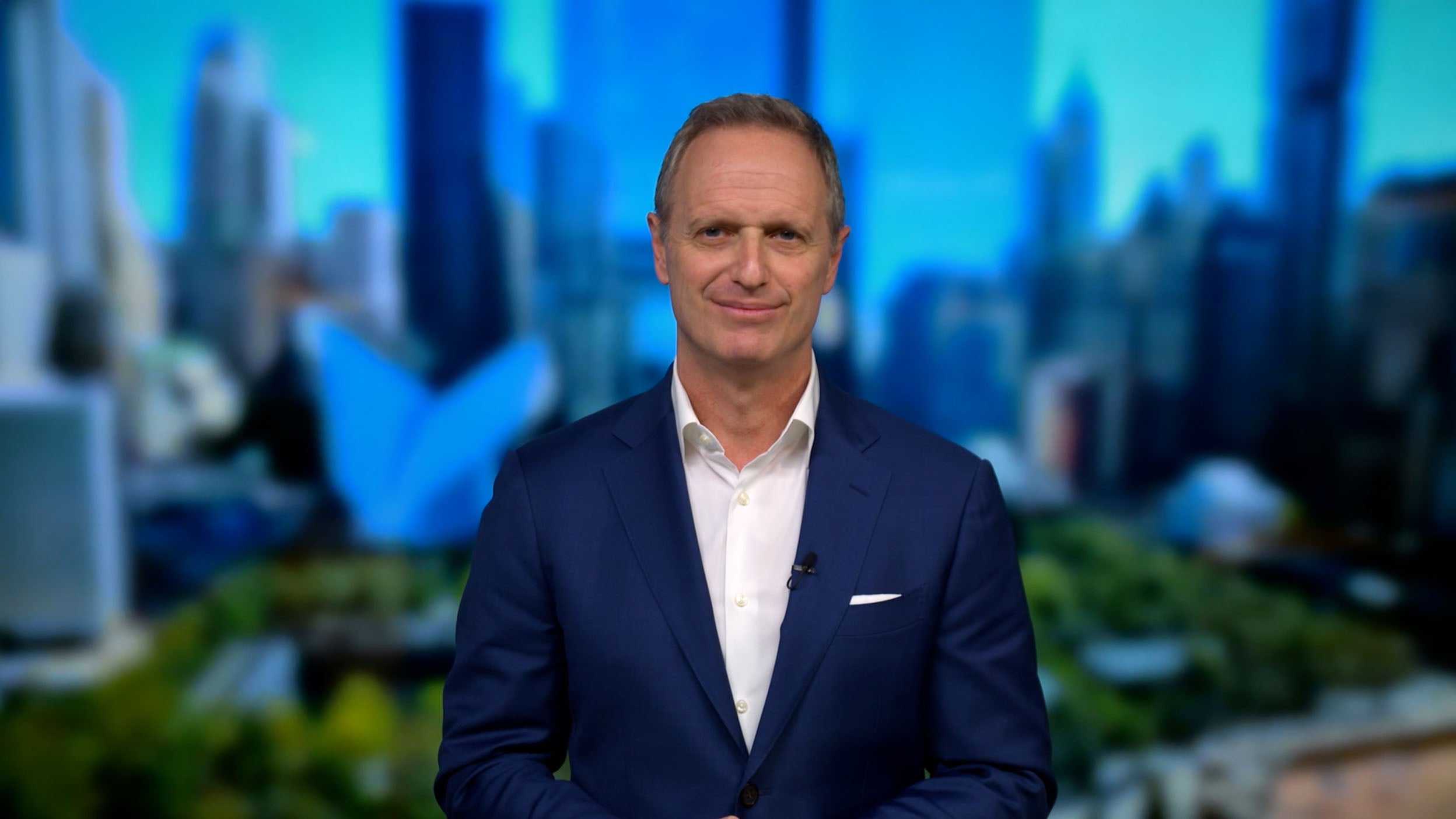
Alternatives Investing with the fear factor
Tariff, trade war, and market volatility headlines can make investors fearful. It's unsettling, but fear can also create opportunities.
Craig Altholz:
Hi, I'm Craig Altholz, client portfolio manager for global credit at Invesco Fixed Income. Joined today by Matt Brill, the head of our US investment grade business. Matt, we've just gone through an important election. There are a couple of adages on Wall Street. One is that elections don't matter to markets. And the other is that Wall Street loves gridlock.
But the market seems like it's reacting in a different way than maybe you would have expected. So could you walk us through what policies you're looking at in particular?
Matt Brill:
Yeah. Thanks, Greg. Yeah, it's been a really interesting time here post-election. And I think at this point we're really focused on four main things. The first being taxes, second tariffs, third immigration and last deregulation.
So when it comes to taxes, it's almost generically very positive for growth to have lower taxes. This can be somewhat of a stimulant though, and it may actually lead to a little bit more inflation as well. With lower taxes. We'll see where they are. It's important to note that they actually haven't been cut yet. We don't even know how far they will be cut if they're cut at all.
But if you do get lower taxes, that will likely lead to the Federal Reserve having a higher neutral rate going forward. So overall tax is good for the economy, not so good for inflation. And then a higher fed rate. Tariffs. Tariffs generally are a one-time tax one time increase in prices. So inflationary. Yes. Long term inflationary debatable.
Generically tariffs are not great for the economy. So could be a bit of a drag for the economic growth of the economy. And it's yet to be determined what the fed will think or do about tariffs. Because if they are just a one-time reset of prices, they're not technically inflationary. And it's something the fed will have to keep a close eye on.
Third, immigration. So immigration generally a positive to demand. It's a positive to the labor force. And it actually typically leads to lower inflation. So it's something to keep an eye on. Again if you have less immigration going forward it could be something that leads to a lower a should be a higher, neutral rate for the Federal Reserve.
So something to keep an eye on there in terms of immigration. Last but certainly not least is deregulation. So deregulation is really the wild card of all this. And deregulation means opening up of markets, enabling free market activity to take place. This could reduce prices. This could actually increase supply in significant areas that needed it. Overall, we think this could also lead to cuts in the federal government, which could be good as well.
We'll have to see how this all plays out. But I would say deregulation is the wild card that we don't know how it's going to be, but overall it could be enough to offset some of the negatives of tariffs and some of the, stimulants as well from the growth policy standpoint.
CA:
Thanks, Matt. So policies are great, but implementation is a different thing.
It could take time. And we never really know how these things are going to play out necessarily. So when you think about how to construct a portfolio or how to adjust a portfolio in the context of what you're talking about, are there sectors that you like more or less as a result of policies and how fast can you implement those ideas given the policy or implementation uncertainty?
MB:
Yeah, so we look to be active managers. We're always trying to take advantage of the markets in their moves. And the either the interpretations policy that are either wrong or we think are overdone. So right now, one of the key areas that we're that we'd be negative on would be energy. We think that a surplus of energy is something the Trump administration is looking for.
Which would be good for prices, meaning lower prices, but might not necessarily be good, for energy corporations from a credit standpoint, in addition to that, emerging markets, obviously, tariffs could be a huge restriction to growth for emerging markets as well certain parts of Europe. We'll have to see. But we would be negative on emerging markets, negative on energy.
But we're quite positive on the banks. We think deregulation is good for banks. A growing economy is good for banks. So we are much more constructive on the investment grade banking side of things as well. So a couple pluses, couple minuses. But overall you know we think that this is good for corporate credit domestically in the US. And that's where we want to be positioned.
CA:
I think you like high yield also one area maybe that we want to think about, particularly when it comes to deregulation, however, is M&A activity. M&A activity has been fairly muted. Do you see M&A activity opening up as a result of of deregulation. Is that positive or negative for credit.
MB:
Yeah. So absolutely we do expect more deregulation to lead to more M&A.
Reason why is it just makes it easier to buy competitors. There's less red tape. This is really good for certain high yield. If you're getting bought by investment grade companies, you're getting bought by a bigger, stronger balance sheet. That's good for credit if you're in the high yield space getting bought, it could be negative, however, if companies over lever themselves in order to purchase these other companies, so are they using equity in order to purchase this additional company or are they using debt to purchase it?
So we want companies to keep an eye on their balance sheet, be conservative, but M&A can still grow the overall pie. And if done in the right manner, it can be very, very good for credit as well as the equity markets.
For US: Not a Deposit | Not FDIC Insured | Not Guaranteed by the Bank | May Lose Value | Not Insured by any Federal Government Agency
All data sourced to Invesco unless otherwise indicated.
Investment risks
Fixed-income investments are subject to credit risk of the issuer and the effects of changing interest rates. Interest rate risk refers to the risk that bond prices generally fall as interest rates rise and vice versa. An issuer may be unable to meet interest and/or principal payments, thereby causing its instruments to decrease in value and lowering the issuer’s credit rating.
Non-investment grade bonds, also called high yield bonds or junk bonds, pay higher yields but also carry more risk and a lower credit rating than an investment grade bond.
The risks of investing in securities of foreign issuers, including emerging market issuers, can include fluctuations in foreign currencies, political and economic instability, and foreign taxation issues.
Businesses in the energy sector may be adversely affected by foreign, federal or state regulations governing energy production, distribution and sale as well as supply-and-demand for energy resources. Short-term volatility in energy prices may cause share price fluctuations.
The performance of an investment concentrated in issuers of a certain region or country is expected to be closely tied to conditions within that region and to be more volatile than more geographically diversified investments.
Invesco does not provide legal or tax advice. This information is provided for general educational purposes only and is not to be considered legal or tax advice. Investors should consult with their legal or tax advisors for personalized assistance.
M&A: mergers and acquisitions
Yield Curve: A yield curve is a curve showing several yields to maturity or interest rates across different maturity lengths for a similar debt contract.
The opinions expressed are that of Invesco Fixed Income and may differ from the opinions of other Invesco investment professionals. Opinions are based upon current market conditions, and are subject to change without notice. As with all investments, there are associated inherent risks. Please obtain and review all financial material carefully before investing. Asset management services are provided by Invesco in accordance with appropriate local legislation and regulations.
For US audiences:
All data provided by Invesco unless otherwise noted.
Invesco Advisers, Inc. is an investment adviser; it provides investment advisory services to individual and institutional clients and does not sell securities. Invesco Distributors, Inc. is the US distributor for Invesco’s retail products. Both are indirect, wholly owned subsidiaries of Invesco Ltd.
©2024 Invesco Ltd.
All rights reserved.
For Canadian audiences:
Commissions, trailing commissions, management fees and expenses may all be associated with mutual fund investments. Mutual funds are not guaranteed, their values change frequently, and past performance may not be repeated. Please read the simplified prospectus before investing. Copies are available from your advisor or from Invesco Canada Ltd.
Most references are US centric and may not apply to Canada. All data is USD, unless otherwise stated.
Publication date: Dec 6, 2024
Invesco® and all associated trademarks are trademarks of Invesco Holding Company Limited, used under
license.
©2024 Invesco Canada Ltd
Invesco is a registered business name of Invesco Canada Ltd. Invesco Canada Ltd. is an indirect, wholly owned subsidiary of Invesco Ltd.
This document is issued in:
NA4069207
Lower taxes could boost growth but increase inflation, while deregulation may unlock opportunities that offset tariff risks.

Tariff, trade war, and market volatility headlines can make investors fearful. It's unsettling, but fear can also create opportunities.

Municipal bonds, with their compelling yields and value, can help diversify a portfolio and mitigate risk in an uncertain environment.

High-quality bonds have provided a much-needed stabilizing force in portfolios during recent market volatility. Stephanie Larosiliere, Head of Fixed Income Business Strategy & Development, North America, explains how.
NA4211381
The opinions expressed are that of Invesco Fixed Income and may differ from the opinions of other Invesco investment professionals. Opinions are based upon current market conditions, and are subject to change without notice. As with all investments, there are associated inherent risks. Please obtain and review all financial material carefully before investing. Asset management services are provided by Invesco in accordance with appropriate local legislation and regulations.
All data provided by Invesco unless otherwise noted.
This link takes you to a site not affiliated with Invesco. The site is for informational purposes only. Invesco does not guarantee nor take any responsibility for any of the content.